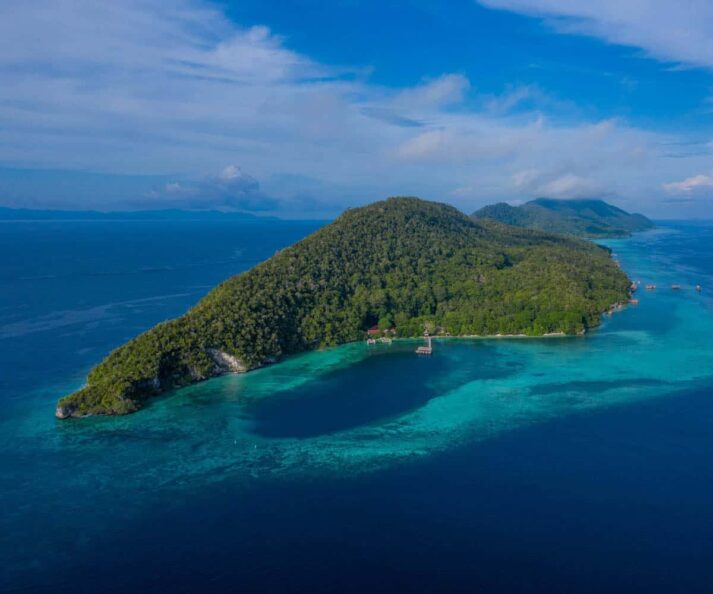Discovering Raja Ampat: A Journey into Eco-Luxury and Biodiversity
Raja Ampat, known as “the last paradise on Earth,” is a breathtaking destination that combines lush landscapes and vibrant marine life. With its rich biodiversity, ancient forests, and unique wildlife, Raja Ampat offers both adventure and a reminder of the importance of environmental conservation. At the forefront of promoting sustainable tourism in this idyllic region is Max Ammer, founder of Kri Eco Resort, who leads a dedicated team striving to protect this paradise amidst numerous environmental challenges.
Accessing Raja Ampat: A Travel Guide
Reaching Raja Ampat requires considerable effort, as visitors must first fly to Jakarta, Indonesia’s capital, and then take a domestic flight to Sorong, located in Southwest Papua. From Sorong, travelers can opt for various modes of transport including dive boats, local ferries to Waisai on Waigeo Island, or speedboat transfers. A popular choice is to take a speedboat, which makes the journey to Kri Island achievable in just a couple of hours from Sorong’s port.
Sorido Bay Resort: A Sanctuary of Eco-Luxury
At Sorido Bay Resort, situated along the pristine shores of Kri Island, guests experience one of the region’s premier eco-luxury accommodations. The resort is a pioneer in sustainable tourism, offering bungalows designed with local materials that blend comfort with ecological responsibility. Guests can unwind in hammocks while enjoying the serene sounds of the jungle and sea. Mornings at the resort begin with brewed coffee and the promise of exploration in this beautiful environment.
Life in the Water: Underwater Paradise
Raja Ampat’s underwater realm is unparalleled, showcasing crystal-clear waters that are home to an astounding array of marine life. Often dubbed Indonesia’s crown jewel, the region boasts some of the world’s richest marine habitats. Snorkeling and diving experiences reveal vibrant corals, graceful turtles, and majestic manta rays, making each marine excursion a unique adventure. Many divers and snorkelers share stories of their underwater encounters, fostering a strong sense of community among visitors. Such interactions highlight the interconnectedness of the ecosystem and the pressing need to safeguard it.
Life on the Land: Exploring Beyond the Waters
After long days spent underwater, returning to Sorido Bay Resort offers its own enchantment. Guests can embark on treks to the sister property Kri Eco Resort, enjoy spa treatments, or visit an on-site zebra shark nursery aimed at conservation efforts. The surrounding Fam Islands present a stunning tableau of turquoise lagoons, limestone karsts, and mangroves, further enhancing the allure of Raja Ampat.
Dining Experiences: Nourishing Choices
Dining at both Sorido Bay and Kri Eco Resort prioritizes sustainability and nutrition, offering an impressive range of plant-based options. From sticky soy-glazed tempeh to homemade condiments, meals are crafted to showcase local ingredients while accommodating dietary preferences. Guests can relish vegan pancakes for breakfast, ensuring that dietary restrictions do not detract from the culinary experience.
Kri Eco Resort: The Vanguard of Responsible Tourism
Founded in the 1990s by Max Ammer, Kri Eco Resort was the first dive resort in the area and has played a crucial role in promoting sustainable tourism practices. The stilted cottages over the water provide guests with an immersive experience in nature while encompassing a commitment to environmental stewardship. Both Sorido Bay and Kri Eco Resort are exemplary models of how tourism can be sustainable without compromising luxury.
Sustainable Initiatives: A Commitment to the Future
The management team at both resorts, under the umbrella of Papua Divers, actively supports numerous community and environmental initiatives, from educational programs to conservation efforts. Guests are encouraged to use reusable metal water bottles and are provided with natural, reef-safe amenities. These practices demonstrate a commitment to minimizing environmental impact, setting a standard that other operators in the region might aspire to follow.
The Future of Tourism in Raja Ampat
Raja Ampat is undeniably a treasure worth exploring, but its future hinges on strict governance and responsible tourism practices. Each traveler has the power to influence the sustainability of this paradise through careful choices regarding accommodations and activities. With the right commitment from both visitors and operators, Raja Ampat can continue to be a model for eco-tourism, balancing adventure and environmental responsibility.
In conclusion, the allure of Raja Ampat lies in its breathtaking natural beauty and rich biodiversity. As travelers experience its wonders, they are also reminded of their role in protecting such fragile ecosystems.









